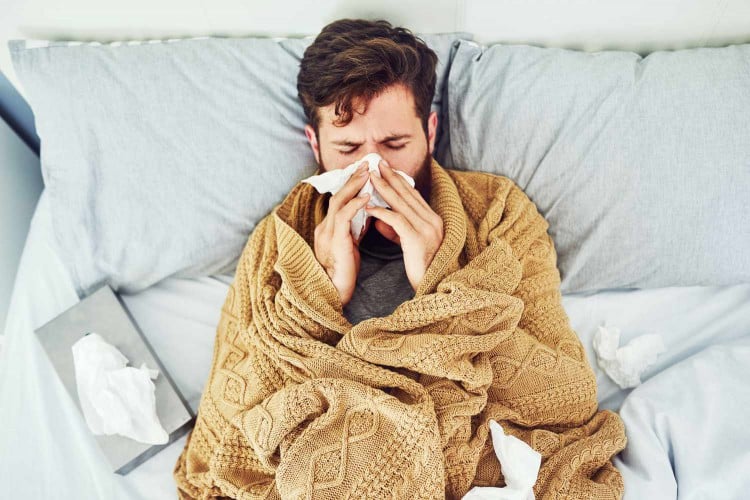

- About 32 million people globally have Alzheimer’s disease.
- There is currently no cure for Alzheimer’s, however, some medications are available to treat symptoms and help slow disease progression.
- Researchers from Amsterdam University Medical Centers and Maastricht University have identified five biological variants directly related to Alzheimer’s disease.
- Scientists believe these findings may impact how future Alzheimer’s treatments are developed and prescribed.
Approximately
There is currently no cure for Alzheimer’s disease, and researchers are still not completely sure what
Now, researchers from Amsterdam University Medical Centers and Maastricht University in the Netherlands have identified five biological variants directly related to Alzheimer’s disease.
Scientists believe these findings — recently published in the journal
Why look for Alzheimer’s biological variants?
Although researchers do not know the exact cause behind Alzheimer’s disease, most agree the formation of
They did that because genetic and tissue proteomic studies previously pointed out that other biological processes beyond amyloid and tau seem to be involved in Alzheimer’s disease.
“But this was difficult to study in patients because the brain is not easily accessible,” Dr. Tijms continued. “New techniques made it possible to measure many proteins in the
”So we made use of these innovations to study if certain subgroups of Alzheimer’s disease patients could be identified that share distinct underlying biological processes,” she added.
What are the 5 biological variants of Alzheimer’s disease?
For this study, Dr. Tijms and her team examined a little over 1,000 proteins in the cerebrospinal fluid of 419 people with Alzheimer’s disease. Through this examination, they discovered five biological variants within this group.
According to Dr. Tijms, the first subtype was characterized by abnormal outgrowth of nerve cells.
She explained:
“Outgrowth is a normal process in the brain when connections between nerve cells get damaged, for example, because of the clumping of amyloid-beta. But here we see that this process goes into overdrive, and does not seem to efficiently repair the connections. The immune system of this variant was not activated properly, which may [interfere] with the clearance of protein clumps.”
– Dr. Betty Tijms
“The second subtype had an overactive immune system, which aggravated the disease progression,” Dr. Tijms continued. “The third subtype had problems with the synthesis of proteins —
”The fourth subtype had damage in the
Surprising results may impact drug development
Both researchers found some of the discovered Alzheimer’s disease biological variants surprising.
“I was surprised by the subtype with dysregulated RNA metabolism because such processes have not been highlighted as a key factor in Alzheimer’s disease,” Dr. Pieter Jelle Visser, professor of molecular epidemiology of Alzheimer’s disease at Maastricht University in the Netherlands and senior author of this study, told MNT.
“It was surprising to see the new subtype with choroid plexus dysfunction,” Dr. Tijms also noted. “They had similar effects as [the] blood-brain barrier with low cerebrospinal fluid tau levels, for example, but no indication at all of leakage of blood proteins in the cerebrospinal fluid.“
“To me that indicates that these brain interfaces are really two different entities, with their own roles in Alzheimer’s disease,” she told us.
Both researchers believe these findings may change how Alzheimer’s medications are developed and prescribed in the future.
“The existence of these subtypes suggests that each subtype may need a different treatment,” Dr. Visser explained. “Future trials should take this into account and test their treatment in the subtypes that matched with the working mechanism of the drug.”
“Alternatively, each future Alzheimer’s disease trial should stratify on subtypes such that the subtypes that best respond to treatment can be identified,” he added. “Future trials may also take into account that side effects may differ between subtypes as well.”
Potential to accelerate intervention research
After reviewing this study, Dr. Karen D. Sullivan, a board-certified neuropsychologist, owner of I CARE FOR YOUR BRAIN, and Reid Healthcare Transformation Fellow at FirstHealth of the Carolinas in Pinehurst, NC, told MNT she found this research to be extremely hopeful, as it has been known for a long time that Alzheimer’s disease is an extremely heterogeneous subtype of
“Some patients have a slow and steady decline while others progress quickly,” she continued. “Some have predominantly memory symptoms while others experience primarily visual and spatial impairments. Identifying these five specific disease processes in Alzheimer’s disease is a necessary starting point [for] personalizing brain healthcare interventions.”
“If the authors are correct in their hypothesis that different Alzheimer’s disease variants may respond differently to treatments, there’s an opportunity to reassess drugs that showed promise in earlier research but were not effective overall. If true, this has the potential to accelerate intervention research.”
– Dr. Jennifer Bramen
For the next steps in this research, Dr. Sullivan said she would like to see researchers find out if these five biological variants result in distinct clinical syndromes in people living with Alzheimer’s disease.
“What is the specific set of cognitive and behavior symptoms and the prognostic significance of these five variants — is there a cause-and-effect relationship?” she continued. “[And] the ultimate question — and here is where the hope lies — do these five variants respond preferentially to different experimental drugs or from different types of preventative or early interventions that keep the disease process from spreading throughout the brain?”



























































